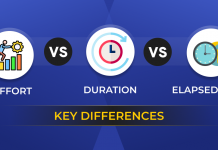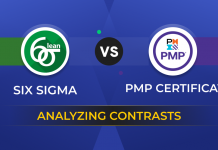
An executive sponsor plays an important role in a project and contributes to its success or failure. Without a clear sponsorship, a project has little chance of sustaining itself. The lack of an appropriate sponsor is often the key reason for the failure of a project.
Here are a few characteristics that distinguish good sponsors:
- A good sponsor should start his or her journey in your project by ensuring that the project has a definite goal that has been agreed upon and signed off by the right stakeholders.
- The sponsor should effectively communicate the project idea or changes required among all team members and ensure that everyone agrees with it.
- A project sponsor’s job does not end with providing sponsorship. He or she should also review every phase of the project, ensuring that it is running as planned and moving towards achieving the set goals.
- He or she should take an active part in removing unforeseen obstacles (if any).
- He or she should suggest and approve changes that are necessary in light of the changing market demands.
- For a project to be successful, the sponsor must be accountable.
However, in some projects, a sponsor may act resistant and may hamper the completion of the work by:
- Avoiding being part of all decision-making processes
- Assigning inappropriate resources that may hinder the progress of your project
- Creating new or unimportant requirements every now and then and thereby slowing down the progress
- Avoiding being part of critical meetings where planning, progress evaluation, new requirement discussion, and other important tasks are being carried out
In such situations, a few strategic steps can enable you to cope with a resistant sponsor. Some of these are described below.
Steps to Cope with a Resistant Project Sponsor
1. Communicate Your Vision across the Organization:
Try to gain support from across your organization regarding the vision you have for your project. Even if your project sponsor has destructive intentions, he will not have the courage to do so, given the entire organization’s support towards your vision.
2. Engage People Close to the Project Sponsor:
In case the project sponsor exhibits destructive behavior, it is best to bring in a third person who is in close contact with the sponsor. If the third person asks penetrating questions regarding the progress of the project, the sponsor may start taking things seriously as he or she is reviewed and answerable to this higher authority.
3. Ensure Correct Documentation:
A good project management practice is to document every small and big agreement, terms and conditions, action items, and open issues in a clear format. In case your sponsor acts resistant towards something that was already been agreed upon before, you will have documents to support your case.
4. Keep Your Sponsor Informed of all Proceedings:
It is very important that you keep your sponsor informed of proceedings in your project. Make sure every small and big decision taken during the meetings is documented carefully and communicated to the sponsor. If there is any unforeseen situation that arises during project completion, ensure that the sponsor actively participates in all critical decision-making processes. This may communicate the importance of the role to him or her, and rather than being resistant, he or she may be inclined to work in the best interests of your project.
5. Explain Tangible Benefits to Your Sponsor:
An apt way of convincing a resistant project sponsor is to explain all tangible benefits of the project. Try explaining how the organization as a whole is going to benefit from it. Also, explain how the success of the project will benefit him or her individually. Once convinced about the benefits, he or she may keep their resistant attitude aside.
6. Understand the Objections:
Sometimes a patient’s hearing resolves most of the issues. When the project sponsor comes up with objections, before going into any kind of argument, listen to what the objection is with empathy and an open mind. Ensure that you understand the other person’s perspective and discuss how things can be resolved keeping these objections in mind. That way, he or she may try to understand your point of view as well and refrain from putting forward further objections.
7. Focus on ‘What’ Rather than ‘How’:
When problems come from the sponsor’s side, you may get overwhelmed thinking of the list of issues that are coming in the way of completing the project. In order to avoid excessive stress and arguments, concentrate on the ‘what’ of the issues instead of ‘how to go about it. Some suggestions or requirements may not be as difficult as you think they are. Involve senior management and bring the issues pointed by your project sponsor to the forefront. Senior management may rule out the insignificant issues and give you a ‘go ahead.
8. Provide Choices and Consequences:
When your sponsor acts resistant and refrains from providing any kind of support, adopt an organized approach rather than trying to convince, which may fall on deaf ears. Provide him or her with a set of alternate options, and alongside, lay out the consequences. Having a set of options to choose from always works better for resistant personalities. By looking at the options and their consequences, he or she will feel that you are concerned about the objections and are willing to cooperate. The sponsor may choose to go ahead with an alternate option or continue with the previous plan.
Working with a resistant sponsor can be a challenge. You may be able to change their behavior, but not entirely. There is not much of a possibility of a highly resistant sponsor becoming enthusiastic about the project. However, by applying the above-mentioned methods, you can ensure that the sponsor keeps away from any kind of destructive behavior towards the successful completion of a project.
From your project management experience, do you have any other suggestions to cope with a resistant sponsor? Drop your comments below.














